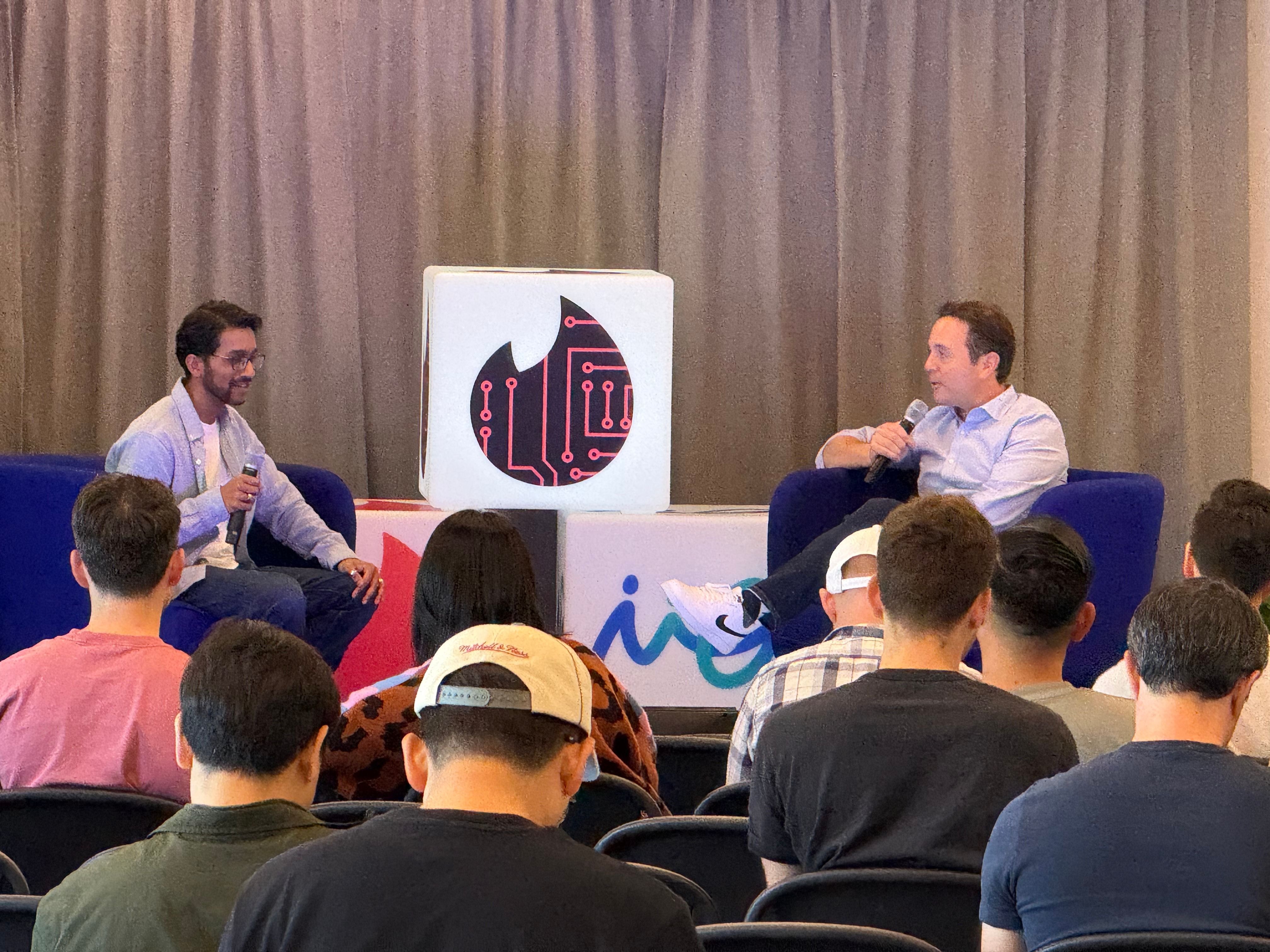What brought you to Tinder?
Tinder’s flexibility has been clear from the beginning. As a parent, it’s really important for me to be able to work flexibly; that’s something I’m very adamant about because it allows me to be present for my son. Everyone has been completely understanding and supportive, and I haven’t had any issues.
Actually, during my remote interview with Tinder’s HR department, I got to experience the understanding and supportive workplace culture. My son was taking a nap, but he woke up crying, so I left my interview to care for him. I was gone for about three solid minutes, which I knew was a risky move. In interviews I’d had with other companies before that, I chose to just power through my son crying off-screen, but he’s the most important thing to me, and I promised myself I would never do that again. With the Tinder interview, I came back, explained the situation, and my interviewer just told me not to feel guilty. It was totally fine. The whole team has been very, very supportive.

What benefits at Tinder help parents?
The benefits are actually pretty incredible. For one, in the U.S., full-time team members get 20 weeks of paid parental leave. That applies to mothers, fathers, birthing or non-birthing parents, adoptive parents, foster parents, or anyone else. We recently had a candidate whose wife is pregnant, and when we told him how long parental leave lasts, he was floored. He was expecting to beg for six weeks.
The family planning stipend program is another great benefit. Tinder covers 100% of family planning costs, up to $10,000. That kind of financial support can be a huge relief for people who are trying to have a family. Before I was at Tinder and before I got pregnant with my son, my husband and I had been trying for five years. We had gone through a couple rounds of IUI (intrauterine insemination) because we weren’t ready for IVF (in vitro fertilization) yet. Even though IVF is more costly, IUI is still expensive—and we paid completely out of pocket. It was emotionally and financially draining. If I’d had a benefit like that when I was trying to conceive, it would have really lifted the weight I was carrying.
Then there are other more general benefits like insurance coverage, paid time off (PTO), and mental health days that we’re encouraged to use. This helps people have a life and handle the everyday stresses that come up whether or not you’re a parent.
How do you keep your distributed team connected and motivated?
Keeping the magic of human connection alive as a distributed hybrid team is tough. As a leader, it’s a particular challenge. Because we can’t just sit down and have a coffee every day, I’ve established open office hours where the whole team gets on a Zoom, I’ll play some music, and we do a talent-sourcing jam. It’s very free-flowing—we’ll talk about everything from weekend plans to decorating to anything else—but we’re still doing our work.
For fun, Tinder built a virtual environment that’s modeled to be exactly like Tinder HQ. It’s a video game, similar to The Sims. You create an avatar, go in, and interact with other employees as though you were in the same room. When I first came to Tinder, I joined a happy hour for new hires there.
We also meet in person as a larger team several times throughout the year. We have happy hours, and we have all kinds of opportunities for building relationships. Recently, we had an in-person meeting with Chad MacRae, Head of Talent Acquisition. Though there was the temptation to work during that meeting, we chose to use the time to bond and get to know each other better as people. We’re focusing on building relationships so that when we get back to our computers, the connections are strong.

What are other ways Tinder is supportive of parents?
The parents’ employee resource group (ERG) is great. We have conversations, give advice, share struggles, and more. It’s really nice to have a support system there. The ERG allows us working parents to reach out to one another. Or even just to see what others are going through and to know, “Oh, it’s not just me.” It can be very isolating if you’re the only parent on your team, but seeing other people having similar experiences is a good reminder that parenthood is part of the overall culture at Tinder.
As I mentioned before, Tinder also takes work-life balance seriously, and that’s clear in all kinds of ways. Being able to set my own schedule has been great for me. I usually start work around 8:30 a.m., after I drop my son at daycare, then I work until about 5:30 p.m., and by 6 p.m. my Slack notifications are snoozed. I close my computer and pack it away. Overall, I think this approach is widely understood and communicated at Tinder. It’s part of the culture.
I also appreciate that our mental health days are separate from our PTO days. When my father-in-law passed away, I was able to take bereavement time, but even before, when we were taking care of his medical needs, I took mental health days without worrying about my team. I felt so supported during that time. The leadership was clear that I should be with my family.
I’m actually thinking about taking a mental health day soon because my son is having a hard time adjusting after we moved recently. It’s great to know I have the option. I’m not worried about my vacation days or being supported. If I go to my manager and tell him I need a day, I know he’ll be there for me.




-min.png)
-min.png)